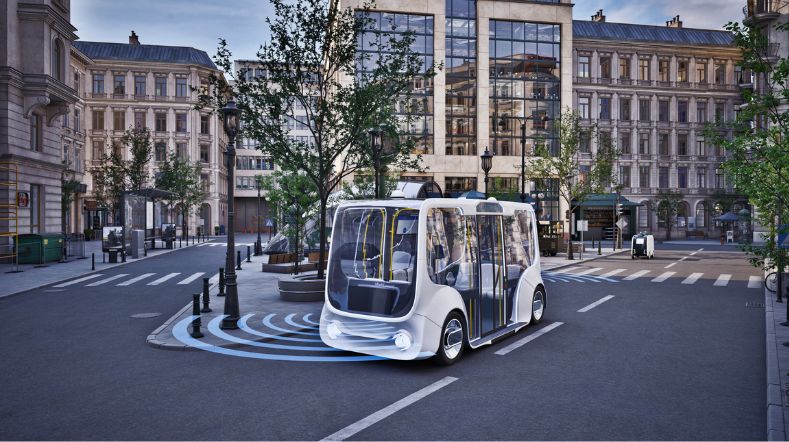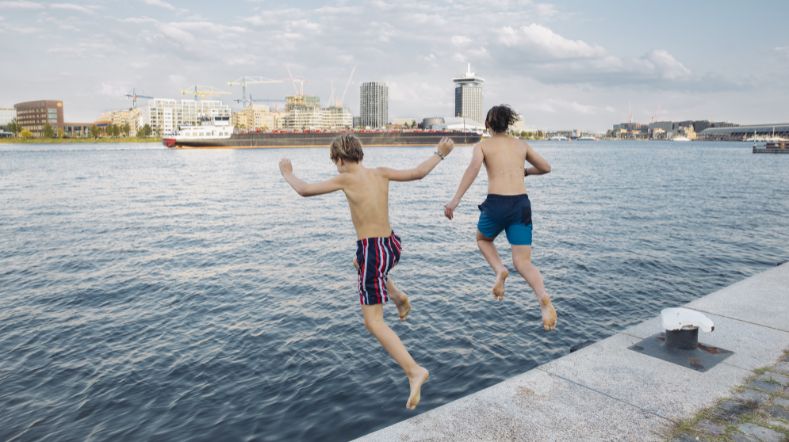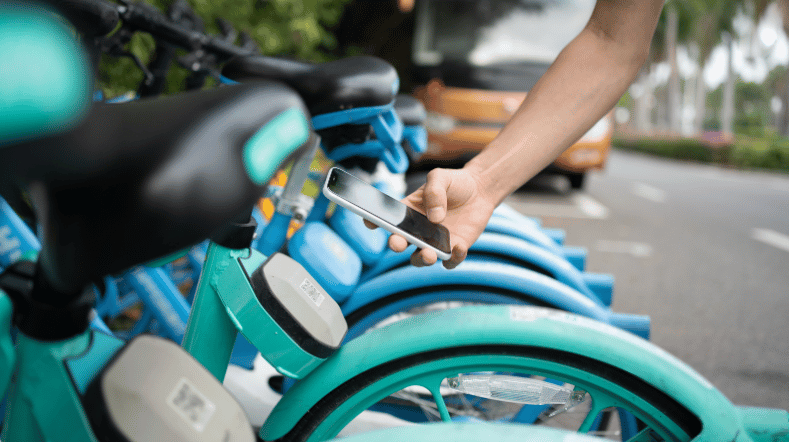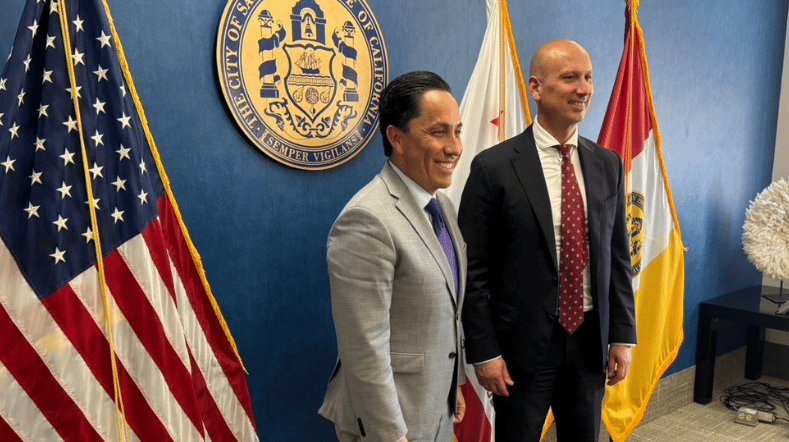
Scenario-based thinking contributes to sustainable mobility and retention of human capital in Curaçao
Through the Urban Strategy platform, TNO is working to combat mobility poverty in Curaçao in collaboration with public and private partners. The deployment of electric buses powered by renewable energy contributes to the energy transition on the island. By training local employees in working with digital twins and scenario-based thinking, human capital is retained for the island, and investment is made in sustainable economic growth.
Update January 2025
TNO has launched spin-off company Scenexus, specialised in urban planning software. Scenexus offers cities and urban planners a cutting-edge Software-as-a-Service solution that generates accurate multi-faceted insights into urgent challenges and developments in urban areas.
Living Lab Curaçao
Over the past four years, TNO has collaborated with the business sector, universities, and government in Curaçao in a Living Lab. Jacqueline Verbeek-Nijhof, Business Developer at TNO, stated: "The goal of this joint research and development program was to accelerate the transition to a sustainable economy on the island. At the core of the collaboration is TNO's Urban Strategy planning tool, which utilises digital twin models.
Municipalities in the Netherlands, such as Amsterdam, use this tool to assess the impact of urban policy measures. Large foreign cities like Singapore and San Diego are also now utilising it.
Curaçao is interesting to work with Urban Strategy for several reasons," says Bart van der Poel, researcher at TNO. "As an island, it's a closed system; a sort of petri dish with many constant factors. Chain innovations are therefore faster to realise and to scale up. The great potential of solar and wind energy is interesting for the entire Caribbean region, as well as for the Netherlands."

"In Curaçao, there are roughly three types of transportation: large public buses, smaller private vans, and private cars. The buses, taxis, and vans together form the public transport system, which in practice is very unreliable and does not provide sufficient coverage."
Four rush hours a day
Urban Strategy has recently been deployed in Curaçao for a very concrete application: establishing a new public transport network. TNO's research shows that accessibility and mobility poverty are significant challenges on the island, where there are four rush hours a day. Schools finish early, causing parents to pick up their children from school at noon, have lunch together, and then return to work. Additionally, the public transport system is severely lacking.
Jacqueline Verbeek-Nijhof explains: "In Curaçao, there are roughly three types of transportation: large public buses, smaller private vans, and private cars. The buses, taxis, and vans together form the public transport system, which in practice is very unreliable and does not provide sufficient coverage."
Taxis and vans have traditionally held a strong position on the island, but they are difficult to regulate into a fixed schedule. They often run late, and moreover, they frequently deviate from their fixed routes. This makes parts of the island poorly accessible and also compromises safety, especially for women who find themselves without transportation in the evenings.
"If you want to combat mobility poverty and improve accessibility, you need to drastically improve the public transport system so that it becomes a viable alternative to cars," concludes Van der Poel.
Off-grid network of electric buses
Using Urban Strategy, TNO, together with local partners, has designed a new timetable for the bus lines, following a so-called fishbone model. This model aims to ensure that public transportation is not only reliable and robust but also accessible. Van der Poel explains: "We have calculated what the implementation of such a fishbone model means for accessibility, with encouraging results."
The energy transition is also taken into account as a second component. "If new buses are needed anyway, it's better to make them electric from the start. Moreover, what if we could charge them independently of the electricity grid, completely off-grid, using renewable energy? Then you have a case that is unique in the world. Previous research within the Living Lab indicated that the energy transition could potentially widen the gap between the rich and poor in Curaçao. With electric buses, we aim to prevent this."
Brain drain
With abundant clean energy from the sun and wind, Curaçao has an abundance of resources that are hardly utilised. Moreover, a suitable location has been found for the construction of this Green Power House: the refinery of Refineria di Kòrsou (RdK), a partner from the project's inception. For over a hundred years, the refinery has been a major employer and source of income for Curaçao.
However, parts of the refinery are no longer in use, raising concerns about a 'brain drain.' RdK aims to help prevent this and be part of Curaçao's sustainable transition. Bart van der Poel explains: "By constructing and eventually managing the Green Power House, the project contributes to the retention of human capital. Furthermore, the goal is to scale up the output by a factor of 10, so that even parts of the refinery and island residents benefit from sustainable electricity."
Starting with six electric buses
Transforming the entire public transport system is a very complex task. The van system is tied to legislation from the 1960s, which cannot be changed easily. Moreover, significant investments are involved, as the infrastructure needs significant overhaul. Van der Poel explains: "That's why we chose to start with six electric buses that AMC Bus Company will operate in the existing schedule. Initially, they will operate in and around Willemstad, for better visibility that can increase acceptance of electric buses."
Construction of the Green Power House has begun, and the connecting roads for the new buses have been constructed. Simultaneously, the pilot with the new public transport system is also underway. "Initially in a less populated area, to allow residents there to experience the benefits of a reliable schedule. Another positive effect is that a large portion of the owners of private vans are voluntarily retraining as drivers on the new electric buses by manufacturer VDL. Employees are also being trained for maintenance, ensuring that expertise remains on the island."
"Initially in a less populated area, to allow residents there to experience the benefits of a reliable schedule. Another positive effect is that a large portion of the owners of private vans are voluntarily retraining as drivers on the new electric buses by manufacturer VDL. Employees are also being trained for maintenance, ensuring that expertise remains on the island."
Data-driven decision making
Human capital retention was also a significant consideration in the introduction of Urban Strategy by TNO. Jacqueline Verbeek-Nijhof explains: "In the collaboration between the University of Curaçao (UoC), the VVRP (Ministry of Traffic, Transportation, and Urban Planning), and TNO, we aim to keep local knowledge. Through workshops, we train employees to work with digital twins. Moreover, we look beyond just mobility, to truly integrate Urban Strategy into decision-making in Curaçao."
An Urban Strategy table is now available at the university, and the program even forms the core of a new course, with the first students already graduated. The VVRP has tasked the students with some policy questions to be answered using Urban Strategy.
"What we are most proud of as TNO is the collaboration we have fostered," says Verbeek-Nijhof. "The VVRP, UoC, AMC Bus Company, the police: all these parties are now sitting down together regularly and seeing the benefits of working together systematically. Moreover, a new way of thinking is emerging, to make decisions based on data and well-founded scenarios."
Innovation center for urban planning
Although the pilot is still in its early stages, Bart van der Poel expects positive effects: "As accessibility will genuinely improve in parts of the island, I anticipate a reduction in mobility poverty. Additionally, I hope that the public transport upgrade will encourage more motorists to take the bus, making the island cleaner and more accessible."
But Van der Poel sees more promising applications for Urban Strategy: "We are looking at existing development plans for resort and residential construction sites and their effects on existing mobility. There are even ideas to plan a car-free neighborhood."
To encourage widespread use of the digital twin tool in Curaçao, there are discussions about establishing an innovation center for urban planning. TNO could remain involved as a knowledge partner at this center, integrating the latest insights and models.
Jacqueline Verbeek-Nijhof looks optimistically to the future: "For Curaçao, this is about a combination of sustainability, new economic stimuli, and knowledge building. I hope that everything we have done here contributes to the broad prosperity and further development of Curaçao."
Get inspired
Don't jump on every innovation bandwagon: TNO's framework to help cities make smarter mobility choices


Urban space


Zero emission urban mobility


How governments can make MaaS work to societal goals


With Urban Strategy, TNO connects with innovative U.S. West Coast in San Diego




